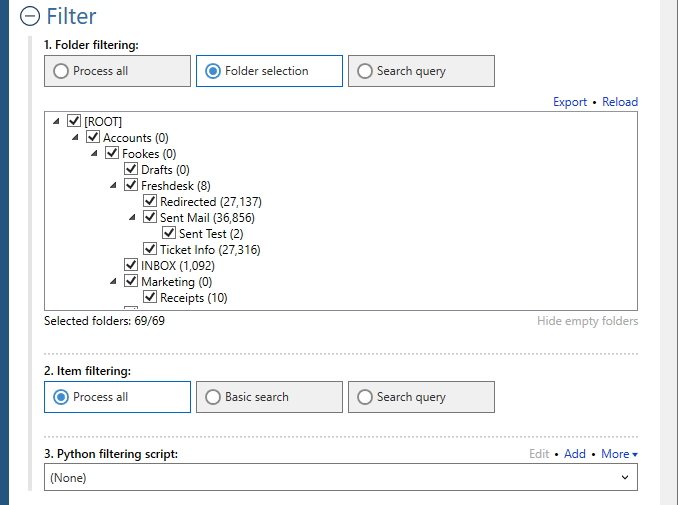Welcome to Fookes Software’s support portal
How to convert email to XML (fast + accurately)
Aid4Mail is the best email to XML converter tool on the market. Compared to competing tools:
- Aid4Mail is faster.
- More accurate with no data loss.
- Offers more control over the conversion process.
If you don’t have Aid4Mail yet, you can use the free trial version or purchase a low-cost 2-week Aid4Mail Converter license.
Please take a look at our tutorial below on converting a PST file to XML. Aid4Mail supports different Outlook formats such as OST, OLM, MSG and other email formats like EML, Mbox, Apple Mail (EMLX), Maildir, Thunderbird and more. For any setting that’s not specifically mentioned, you can either use the default (preset) value or consult the Aid4Mail 5 user guide for details.
Step 1: Open Aid4Mail’s settings
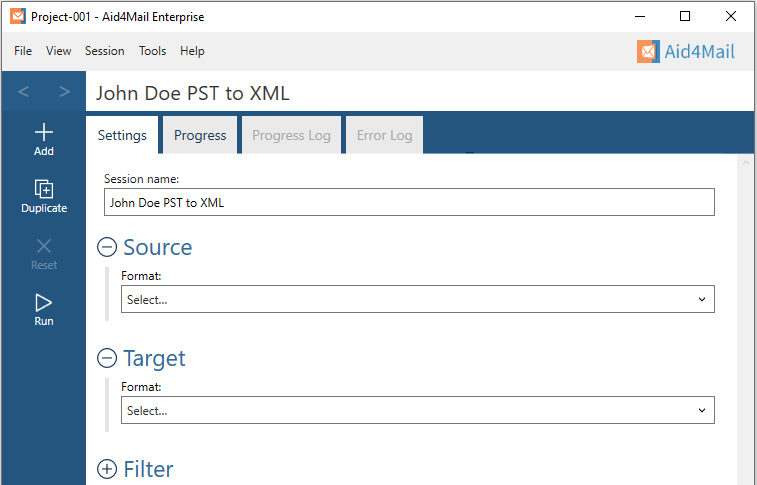
- In Aid4Mail, select the Settings tab.
- Update the Session name to so it describes for the task at hand. In this example, we will be converting John Doe’s PST file to XML so we’ve entered John Doe PST to XML as the session name.
- Below the session name there are three sections: Source, Target and Filter. Each can be displayed or hidden by selecting the +/- symbol next to the section heading. This tutorial requires them all to be displayed.
Step 2: Set PST as your source
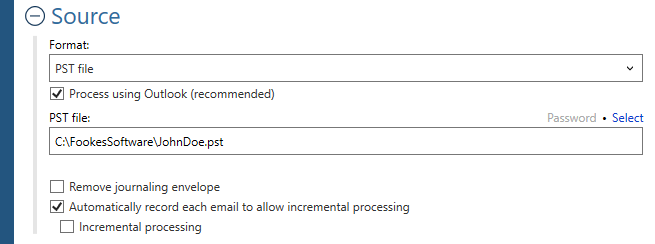
- In the Format list, select PST.
- Choose whether to Process using Outlook. This means using Outlook’s internal engine (MAPI) to open and read the PST file. Using Outlook’s engine is faster but requires Outlook to be installed on the same computer as Aid4Mail. If you don’t have Outlook installed, turn this option off.
- Set the Location of your PST file, either writing it directly in the PST file: field or by using the Select button to browse your file system.
- Choose whether to Remove journaling envelope if your email files are journaled.
Step 3: Set XML as your target
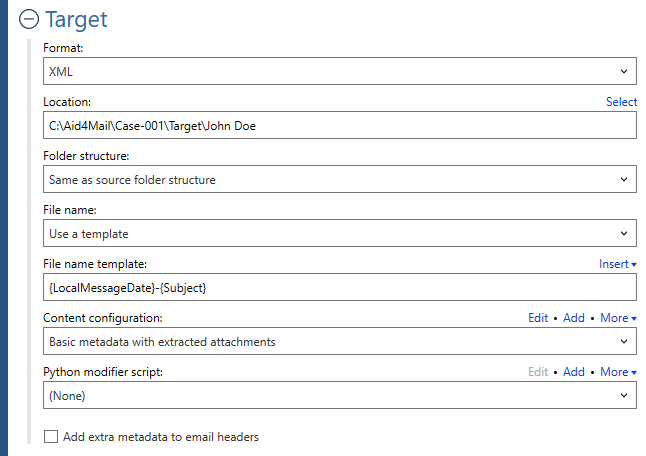
-
- In the Format list, select XML.
- Specify where you want your XML files to be saved. You can write directly in the field or use the Select button to browse your file system.
- Select an option for the Folder structure of the exported mail. Usually you’ll want to keep it the same as the original, so choose Same as source folder structure.
- Select an option for the File name of the exported XML files. For this example we selected Use a template to create a custom file naming template.
- For the custom File name template, {LocalMessageDate}-{Subject} was added. Each XML file will have the emails date and subject as the file name. Select Insert to see all available template options.
- Select an option for the Content configuration. You can select one of the default options in the drop-down list or you can create your own by using the Add button. Aid4Mail allows you to fully customize which items of information from the emails you want added to the XML files. As shown below, there are 95+ items that can be selected. For this example, we are using Basic metadata with extracted attachments.
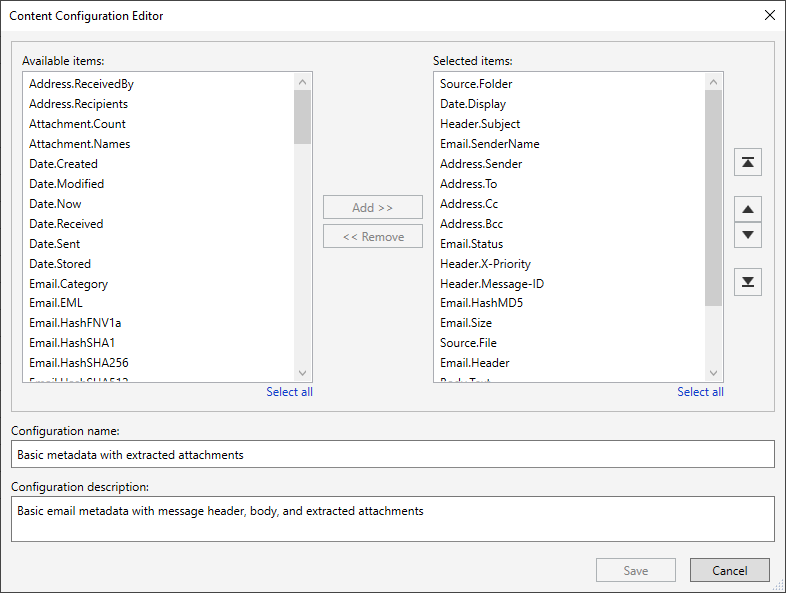
Step 4: Set your filter (optional)
- Under Folder filtering, pick Folder selection. Your PST file folder structure will appear in the box below.
- Select the folders you want Aid4Mail to process. The others will be skipped.
Step 5: Run your PST to XML conversion
Select the Run button or Session > Run from the menu. Aid4Mail will convert your PST file to XML files. It will automatically open the Progress tab so you can monitor what’s going on. Once finished, you will find full reports in the Progress log and, if relevant, the Error log.
That’s it!
We hope you found this tutorial helpful in showing you why Aid4Mail is the best email to XML converter on the market. As shown above, Aid4Mail can export PST to XML with or without Outlook being installed on the machine. Convert email to xml files with Aid4Mail!
If you’re looking for further information, first take a look through the Aid4Mail 5 user guide and our knowledge base articles.
If you still have questions, don’t hesitate to contact our award-winning Helpdesk.
If you’d like to buy an Aid4Mail license, please visit the online store.
Or if you’d like to try Aid4Mail first before purchasing, download a free trial and run your own tests converting email to XML. We want you to have full confidence in Aid4Mail!
